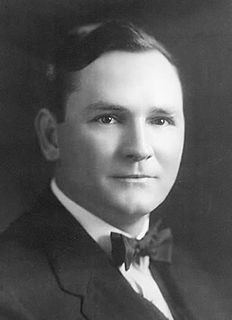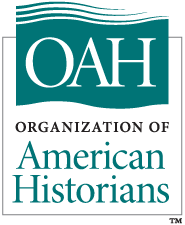Related Research Articles

Evangelicalism, evangelical Christianity, or evangelical Protestantism, is a worldwide trans-denominational movement within Protestant Christianity that maintains the belief that the essence of the Gospel consists of the doctrine of salvation by grace alone, solely through faith in Jesus's atonement. Evangelicals believe in the centrality of the conversion or "born again" experience in receiving salvation, in the authority of the Bible as God's revelation to humanity, and in spreading the Christian message. The movement has long had a presence in the Anglosphere before spreading further afield in the 19th, 20th and early 21st centuries.

The Second Great Awakening was a Protestant religious revival during the early 19th century in the United States. The Second Great Awakening, which spread religion through revivals and emotional preaching, sparked a number of reform movements. Revivals were a key part of the movement and attracted hundreds of converts to new Protestant denominations. The Methodist Church used circuit riders to reach people in frontier locations. The Second Great Awakening led to a period of antebellum social reform and an emphasis on salvation by institutions. The outpouring of religious fervor and revival began in Kentucky and Tennessee in the 1790s and early 1800s among the Presbyterians, Methodists and Baptists. The awakening brought comfort in the face of uncertainty as a result of the socio-political changes in America.

The United Church of Christ (UCC) is a mainline Protestant Christian denomination based in the United States, with historical and confessional roots in the Congregational, Reformed, Lutheran, and Anabaptist traditions, and with approximately 4,852 churches and 802,356 members. The United Church of Christ is a historical continuation of the General Council of Congregational Christian churches founded under the influence of New England Pilgrims and Puritans. Moreover, it also subsumed the third largest Reformed group in the country, the German Reformed. The Evangelical and Reformed Church and the General Council of the Congregational Christian Churches united in 1957 to form the UCC. These two denominations, which were themselves the result of earlier unions, had their roots in Congregational, Lutheran, Evangelical, and Reformed denominations. At the end of 2014, the UCC's 5,116 congregations claimed 979,239 members, primarily in the U.S. In 2015, Pew Research estimated that 0.4 percent, or 1 million adult adherents, of the U.S. population self-identify with the United Church of Christ.
Friends United Meeting (FUM) is an association of twenty-six yearly meetings of the Religious Society of Friends (Quakers) in North America, Africa, and the Caribbean. Its home pages states that it is "a collection of Christ-centered Quakers, embracing 34 yearly meetings and associations, thousands of local gatherings and hundreds of thousands of individuals." In addition there are several individual Monthly meetings and organizations that are members of FUM. FUM's headquarters is in Richmond, Indiana, and has offices in Kisumu, Kenya. Friends United Meeting is a member of the National Council of Churches in the United States of America.

John Richard Rice was a Baptist evangelist and pastor and the founding editor of The Sword of the Lord, an influential fundamentalist newspaper.
The Missionary Church is an evangelical Christian denomination of Anabaptist origins with Wesleyan and Pietist influences.
The Church of the United Brethren in Christ is an evangelical Christian denomination with churches in 17 countries. It is Protestant, with an episcopal structure and Arminian theology, with roots in the Mennonite and German Reformed communities of 18th-century Pennsylvania, as well as close ties to Methodism. It was organized in 1800 by Martin Boehm and Philip William Otterbein and is the first American denomination that was not transplanted from Europe. It emerged from United Brethren churches that were at first unorganized, and not all of which joined this church when it was formally organized in 1800, following a 1789 conference at the Otterbein Church.

Robert Reynolds Jones Sr. was an American evangelist, pioneer religious broadcaster, and the founder and first president of Bob Jones University.

William Franklin Graham Jr. was an American evangelist, a prominent evangelical Christian figure, and an ordained Southern Baptist minister who became well-known internationally in the late 1940s. One of his biographers has placed him "among the most influential Christian leaders" of the 20th century.

Christianity Today magazine is an evangelical Christian periodical founded in 1956 by Billy Graham. It is published by Christianity Today International based in Carol Stream, Illinois. The Washington Post calls Christianity Today, "evangelicalism's flagship magazine". The New York Times describes it as a "mainstream evangelical magazine".

Huntington University is a private Christian university in Huntington, Indiana. It is affiliated with the Church of the United Brethren in Christ and a member of the Council for Christian Colleges and Universities (CCCU).

The Organization of American Historians (OAH), formerly known as the Mississippi Valley Historical Association, is the largest professional society dedicated to the teaching and study of American history. OAH's members in the U.S. and abroad include college and university professors; historians, students; precollegiate teachers; archivists, museum curators, and other public historians; and a variety of scholars employed in government and the private sector. The OAH publishes the Journal of American History. Among its various programs, OAH conducts an annual meeting each spring, and has a robust roster on its OAH Distinguished Lecturership Program.

Quakers, also called Friends, belong to a historically Christian (Protestant) denomination known formally as the Religious Society of Friends. Members of the various Quaker movements are all generally united by their belief in the ability of each human being to experientially access the light within, or "that of God in every one".

In the United States, evangelicalism is a set of spiritual principles practiced by Protestant Christians who believe in the necessity of being born again, emphasize the importance of evangelism, and affirm traditional Protestant teachings on the authority as well as the historicity of the Bible. Comprising nearly a quarter of the US population, evangelicals are diverse group drawn from a variety of denominational backgrounds, including Baptist, Mennonite, Methodist, Holiness, Pentecostal, Reformed and nondenominational churches.

Christian revivalism is increased spiritual interest or renewal in the life of a church congregation or society, with a local, national or global effect. This should be distinguished from the use of the term "revival" to refer to an evangelistic meeting or series of meetings. Proponents view revivals as the restoration of the church itself to a vital and fervent relationship with God after a period of moral decline.

The Pennsylvania Historical Association (PHA), founded in 1932, is a non-profit volunteer organization committed to promoting interest in Pennsylvania and Mid-Atlantic history. It publishes a journal, Pennsylvania History: A Journal of Mid-Atlantic Studies, as well as the Pennsylvania History Studies Series, which provides succinct overviews of themes and issues in Pennsylvania history. With support from the Pennsylvania Historical and Museum Commission, the PHA holds an annual meeting in a different Pennsylvania location each fall and joins other organizations in sponsoring history programming such as Pennsylvania History Day and ExplorePAHistory.com.

The John Whitmer Historical Association (JWHA) is an independent, nonprofit organization promoting study, research, and publishing about the history and culture of the Latter Day Saint movement. It is especially focused on the Community of Christ, other midwestern Restoration traditions, and early Mormonism. The Community of Christ's approach to its own history was influenced, in part, by historical problems raised and explored through JWHA publications and conferences, and those of its sister organization, the Mormon History Association. JWHA membership numbers around 400 and is open to all, fostering cooperation with LDS and non-Mormon scholars.
Christian study centers are American Christian organizations located close to universities and colleges. Beginning in 1968, they have been developed to encourage the life of the mind and a thoughtful approach to all academic disciplines from an orthodox Christian perspective. One long-term goal of many study centers is to maintain a physical presence close to a university campus, not unlike Hillel: The Foundation for Jewish Campus Life. Many of these college religious organizations are affiliated with the Consortium of Christian Study Centers, which was founded in 2008.
The Institute for Advanced Christian Studies (IFACS) was an American foundation, founded by theologian Carl F. H. Henry in 1967, for the purpose of encouraging evangelical Protestant scholars to pursue their academic work from a distinctively Christian worldview. Henry's ultimate goal was to establish a high-caliber, doctorate-granting Christian research university.
The believers' Church is a theological doctrine of Evangelical Christianity that teaches that one becomes a member of the Church by new birth and profession of faith. Adherence to this doctrine is a common feature of defining an Evangelical Christianity church.
References
- ↑ D.G. Hart, “History in Search of Meaning: The Conference of Faith and History,” in History and the Christian Historian, ed. Ronald Wells (Grand Rapids, MI: Eerdmans, 1998), 68- 87.
- ↑ William Vance Trollinger Jr., “Faith, History, and the Conference on Faith and History,” Fides et Historia 33:1 (Winter/Spring 2001): 1–10.
- ↑ "The Conference on Faith and History Website". Huntington University, Huntington, Indiana. Retrieved 29 October 2011.
- ↑ "Records of the Conference on Faith and History". Billy Graham Archives. Retrieved 11 October 2011.